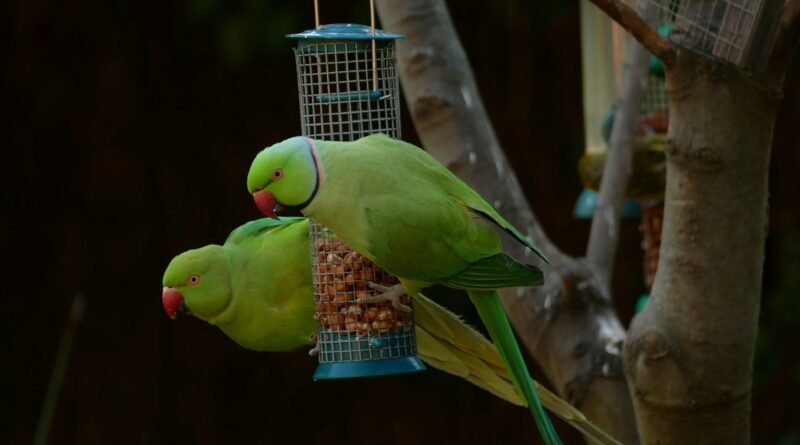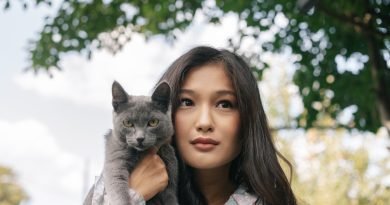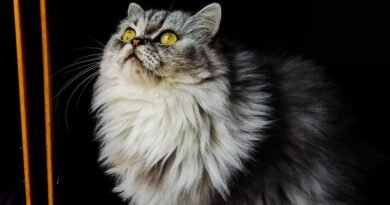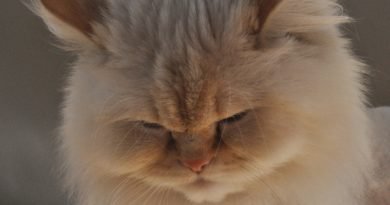Ringneck Parrot Price in India
Owning a Ringneck Parrot in India is a rewarding experience, but before you bring one home, it’s crucial to understand the different aspects associated with these vibrant birds.
One significant consideration is the price, which varies based on factors like color mutations.
In this article, we’ll delve into the Ringneck Parrot prices in India, color variations, essential information about the breed, and tips on caring for these beautiful birds.
Ringneck Parrot Price in India
The pricing of Indian Ringneck Parrots in India is influenced by various factors, making it a dynamic market with a wide range of options for prospective buyers.
While the average price typically falls between 1500 Rs to 3,000 Rs per pair, several variables can contribute to variations in cost.
Color Mutation:
The color mutation of the Ringneck Parrot significantly impacts its price. While the classic green variant is more budget-friendly, unique and rare colors such as yellow, blue, white, and purple can escalate the cost considerably.
The scarcity and demand for certain mutations can make them more expensive, reaching up to 45,000 Rs per pair.
Gender:
The gender of the Ringneck Parrot can also affect its price. In some cases, female Ringnecks may be priced differently from males due to factors like breeding potential and demand for specific genders within the market.
Location and Availability:
Prices may vary based on the geographical location and the availability of Ringneck Parrots in specific regions. Areas with a higher demand and limited availability might experience an increase in prices compared to regions where these birds are more prevalent.
Breeder Reputation:
Established and reputable breeders who prioritize the health and well-being of their birds may charge higher prices. The assurance of obtaining a well-cared-for and healthy Ringneck can be a contributing factor to the overall cost.
Age and Training:
The age and training level of the Ringneck can also play a role in determining its price. Young, hand-tamed birds or those with specific training may be priced higher due to the additional time and effort invested by the breeder.
Market Trends:
Dynamic market trends, influenced by factors such as seasonal demand or shifts in popularity of certain color mutations, can impact prices. Keeping an eye on market trends can help buyers make informed decisions.
Health and Documentation:
Ringneck Parrots with thorough health check-ups, veterinary documentation, and certifications from breeders or sellers might be priced higher. Buyers often prioritize the assurance of a healthy bird.
Understanding these influencing factors is essential for potential buyers to navigate the Ringneck Parrot market in India effectively.
Conducting thorough research, considering personal preferences, and verifying the credentials of the seller can contribute to a satisfying and ethical purchase.
Color Mutation of Indian Ring Neck Parrot and Prices in India
Green Ringneck Parrot
The Green Ringneck Parrot, with its natural and classic coloration, is among the more affordable options for bird enthusiasts.
Priced at an average of ₹1500 to ₹3000 per pair, these birds are not only visually appealing but also a budget-friendly choice for those looking to bring home a charming companion.
Yellow Ringneck Parrot
The Yellow Ringneck Parrot, known for its vibrant and striking yellow plumage, commands a higher price range in the market.
With an average price ranging from ₹20,000 to ₹25,000 per pair, these birds are a popular choice for those who appreciate the unique and bold coloration that sets them apart from the traditional green variants.
Blue Ringneck Parrot
The Blue Ringneck Parrot, featuring a captivating blue hue, is priced in a moderate range, making it an attractive option for those seeking a balance between uniqueness and affordability.
With an average cost of ₹25,000 to ₹35,000 per pair, Blue Ringnecks add a touch of elegance to any aviary or household.
White Ringneck Parrot
The White Ringneck Parrot, with its pristine and snowy appearance, stands out as a symbol of purity and grace.
Priced between ₹38,000 to ₹40,000 per pair, these birds are considered a premium choice, often sought after by enthusiasts who appreciate their rarity and aesthetic appeal.
Purple Ringneck Parrot
The Purple Ringneck Parrot, exhibiting a regal and distinctive coloration, is among the higher-end options for bird enthusiasts.
Priced in the range of ₹35,000 to ₹45,000 per pair, these birds are a testament to the diverse and captivating world of color mutations within the Indian Ringneck Parrot species.
In the vibrant landscape of Indian Ringneck Parrots, each color mutation offers a unique personality and aesthetic, catering to different preferences and budgets.
Whether you opt for the budget-friendly Green Ringneck or the luxurious Purple Ringneck, the joy of having these colorful companions is bound to enrich your avian experience.
Caring Tips for Ringneck in India
Cage Size
Ensuring the well-being and happiness of your Ringneck Parrot starts with providing an adequately sized cage.
Ringnecks are active and energetic birds, and a spacious cage allows them to move around, stretch their wings, and explore their surroundings.
Aim for a cage that provides both horizontal and vertical space, with enough room for toys and perches.
Consider a cage size of at least 24 inches in length, width, and height to give your feathered friend a comfortable living space.
Diet
The ideal diet for Ringneck Parrots is diverse and balanced, mimicking their natural nutritional needs. Include a mix of high-quality pellets, seeds, fresh vegetables, fruits, grains, sprouts, and nuts in their daily meals.
This varied diet ensures they receive essential vitamins, minerals, and nutrients for overall health. Monitor portion sizes to prevent overeating and consult with a avian veterinarian to tailor the diet to your specific Ringneck’s needs.
Interaction
Ringnecks are highly social birds that thrive on interaction and companionship. Spend quality time with your Ringneck every day, engaging in activities such as talking, playing, and training.
These interactions not only strengthen the bond between you and your bird but also provide mental stimulation and prevent boredom.
Consider providing toys that encourage problem-solving and mimic natural behaviors, fostering a happy and contented Ringneck.
Keep Them Occupied
Ringnecks are intelligent birds that require mental stimulation to stay happy and healthy. Provide a variety of toys, including puzzles, chew toys, and interactive playthings that challenge their cognitive abilities.
Rotating toys regularly keeps the environment fresh and prevents boredom. Additionally, consider incorporating foraging activities into their daily routine, encouraging them to explore and search for treats, enhancing their natural instincts.
Room Temperature
Maintaining an optimal room temperature is crucial for the well-being of your Ringneck. These birds are sensitive to extreme temperature fluctuations. Keep the room temperature between 70-80°F (21-27°C) to ensure they are comfortable.
Avoid placing the cage in drafty areas or direct sunlight, as this can cause stress or discomfort. Provide a cozy corner with a comfortable perch for your Ringneck to rest and feel secure.
By adhering to these caring tips, you can create a nurturing environment for your Ringneck Parrot, promoting their physical health and emotional well-being.
Remember, each bird is unique, so pay attention to their individual preferences and adjust your care routine accordingly.
Diet for Ringneck Parrots in India
Providing a well-balanced and nutritious diet is paramount to ensuring the health and vitality of your Ringneck Parrot. Understanding their dietary needs and preferences is crucial for their overall well-being.
Food Pellets
High-quality food pellets serve as a foundation for a Ringneck’s diet. These pellets are formulated to provide essential vitamins, minerals, and nutrients. Opt for pellets specifically designed for parrots, ensuring they are free from artificial additives and preservatives.
Pellets offer a consistent and balanced nutritional profile, contributing to the overall health of your feathered companion.
Seeds
Seeds are a natural and essential part of a Ringneck’s diet. However, they should be provided in moderation due to their high fat content. Include a mix of seeds such as sunflower, safflower, and millet as a supplement to their primary diet.
This variety ensures a diverse range of nutrients and helps prevent dietary imbalances.
Vegetables
Fresh vegetables are a vital component of a Ringneck’s diet, offering essential vitamins and minerals. Leafy greens like spinach and kale, along with vegetables such as carrots, broccoli, and bell peppers, provide a colorful and nutritious array.
Ensure that the vegetables are washed thoroughly and cut into manageable pieces to facilitate easy consumption.
Fruits
Fruits add sweetness and additional nutrients to your Ringneck’s diet. Offer a variety of fruits such as apples, grapes, bananas, and berries. Remove seeds from fruits like apples to prevent any potential harm.
Fruits serve as a tasty treat and contribute to the overall enrichment of their diet.
Grains
Incorporating grains like rice and whole grains into your Ringneck’s diet provides essential carbohydrates. These grains can be cooked and offered in small quantities as part of their daily meals.
Ensure that the grains are unseasoned and cooked without any added fats or oils.
Sprouts
Sprouted seeds and legumes are rich in enzymes and nutrients, making them a nutritious addition to your Ringneck’s diet. Sprouting enhances the bioavailability of nutrients and introduces a crunchy texture that many birds enjoy.
Experiment with a variety of seeds like mung beans, lentils, and sunflower seeds.
Nuts
Nuts, such as almonds, walnuts, and pistachios, are a great source of healthy fats, protein, and essential minerals. Offer them in moderation as they are calorie-dense.
Nuts can be provided as whole or crushed, and they serve as both a nutritional supplement and an engaging foraging item.
Toxic Foods
Certain foods can be toxic to Ringneck Parrots and should be strictly avoided. These include avocado, chocolate, caffeine, alcohol, and foods high in salt or sugar.
Familiarize yourself with a comprehensive list of toxic foods to ensure the safety of your bird.
Unhealthy Foods
Limit the intake of processed and unhealthy foods such as sugary treats, salty snacks, and fried items.
These can contribute to obesity and other health issues in Ringnecks. Stick to natural and wholesome food options to maintain their optimal health.
Water
Fresh and clean water is essential for your Ringneck’s hydration. Ensure that the water is changed daily, and the water container is cleaned to prevent the growth of harmful bacteria.
Regular access to clean water is crucial for their overall health and well-being.
By offering a diverse and well-rounded diet, you can contribute to the longevity and vitality of your Ringneck Parrot.
Regularly monitor their food preferences and adjust their diet based on their individual needs and health requirements.
Pros and Cons of Owning Ringneck Parrot in India
Owning a Ringneck Parrot in India can be a rewarding experience, but it comes with its own set of challenges and delights.
Understanding the pros and cons can help potential bird owners make an informed decision before bringing these vibrant companions into their homes.
Pros:
Intelligent and Social Companions:
Pro: Ringneck Parrots are renowned for their high intelligence and social nature. They form strong bonds with their owners and enjoy interactive activities. Their ability to mimic sounds and words adds an entertaining element to the household.
Beautiful and Diverse Colors:
Pro: One of the major attractions of Ringneck Parrots is their stunning and diverse color mutations. From vibrant greens to captivating blues and rare purples, the visual appeal of these birds makes them a joy to behold.
Long Lifespan:
Pro: With proper care, Ringneck Parrots can live for several decades, providing companionship for a significant portion of the owner’s life. Their longevity allows for a lasting and meaningful bond.
Adaptable to Various Environments:
Pro: Ringnecks are adaptable birds that can thrive in different environments, including apartments and houses. Their ability to adjust to diverse living conditions makes them suitable for various lifestyles.
Playful and Energetic:
Pro: Ringnecks are known for their playful and energetic behavior. They enjoy toys, games, and activities, making them delightful companions for individuals or families looking for an interactive pet.
Cons:
Loud Vocalizations:
Con: Ringneck Parrots can be quite vocal, and their calls can be loud and piercing. This can be challenging for owners living in close quarters with neighbors or in noise-sensitive environments.
Potential for Behavioral Issues:
Con: Without proper socialization and training, Ringnecks may develop behavioral issues such as excessive screaming, biting, or feather plucking. Consistent and patient training is essential to address and prevent such problems.
Messiness:
Con: Ringnecks can be messy eaters, and their activities may result in scattered food, feathers, and droppings. Regular cleaning is necessary to maintain a hygienic environment.
Time-Intensive Care:
Con: These birds require substantial time and attention from their owners. Lack of interaction and mental stimulation can lead to boredom and behavioral problems. Prospective owners should be prepared for a significant time commitment.
Health Concerns:
Con: Ringnecks are susceptible to certain health issues, including respiratory problems and nutritional deficiencies. Regular veterinary check-ups and a well-balanced diet are crucial for maintaining their health.
In conclusion, while Ringneck Parrots can bring joy, companionship, and vibrant energy into your life, potential owners must be aware of the responsibilities and challenges associated with their care.
With proper commitment, training, and care, the pros of owning a Ringneck can outweigh the cons, resulting in a fulfilling and enduring relationship with these colorful avian companions.
Frequently Asked Questions (FAQs) about Ringneck Parrots in India
Ringneck Parrots have a long lifespan and can live up to 20-30 years or even more with proper care, a balanced diet, and regular veterinary check-ups.
Yes, Ringneck Parrots are excellent talkers and can mimic sounds. To teach them, use repetition, clear pronunciation, and positive reinforcement. Start with simple words and phrases and gradually increase complexity.
A suitable cage size for a Ringneck Parrot is at least 24 inches in length, width, and height. This allows for comfortable movement, the addition of toys, and the opportunity for mental stimulation.
Consistent training, positive reinforcement, and socialization are key to addressing behavioral issues. Identify the root cause, be patient, and seek guidance from avian professionals if needed.
Yes, it is recommended to include a variety of fresh fruits and vegetables in a Ringneck’s daily diet. However, avoid toxic foods like avocado, chocolate, caffeine, and provide these treats in moderation to maintain a balanced diet.




